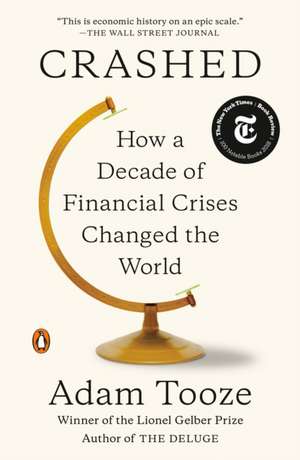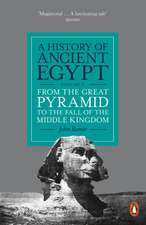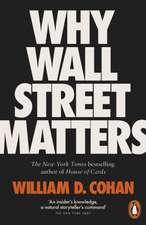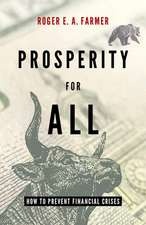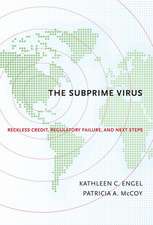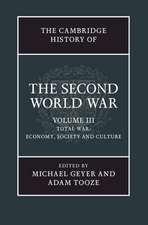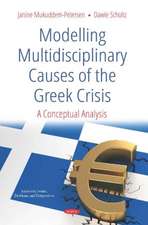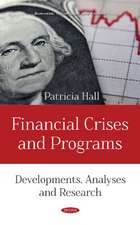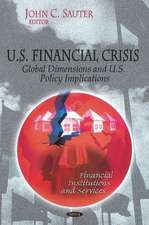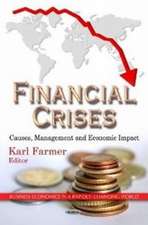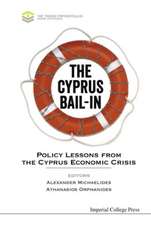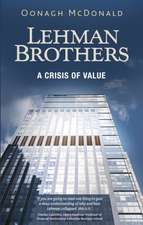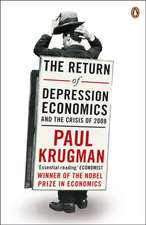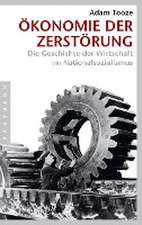Crashed
Autor Adam Toozeen Limba Engleză Paperback – 27 aug 2019
A NEW YORK TIMES NOTABLE BOOK OF 2018
ONE OF THE ECONOMIST'S BOOKS OF THE YEAR
A NEW YORK TIMES CRITICS' TOP BOOKAn intelligent explanation of the mechanisms that produced the crisis and the response to it...One of the great strengths of Tooze's book is to demonstrate the deeply intertwined nature of the European and American financial systems.--The New York Times Book Review From the prizewinning economic historian and author of Shutdown and The Deluge, an eye-opening reinterpretation of the 2008 economic crisis (and its ten-year aftermath) as a global event that directly led to the shockwaves being felt around the world today. We live in a world where dramatic shifts in the domestic and global economy command the headlines, from rollbacks in US banking regulations to tariffs that may ignite international trade wars. But current events have deep roots, and the key to navigating today's roiling policies lies in the events that started it all--the 2008 economic crisis and its aftermath. Despite initial attempts to downplay the crisis as a local incident, what happened on Wall Street beginning in 2008 was, in fact, a dramatic caesura of global significance that spiraled around the world, from the financial markets of the UK and Europe to the factories and dockyards of Asia, the Middle East, and Latin America, forcing a rearrangement of global governance. With a historian's eye for detail, connection, and consequence, Adam Tooze brings the story right up to today's negotiations, actions, and threats--a much-needed perspective on a global catastrophe and its long-term consequences.
| Toate formatele și edițiile | Preț | Express |
|---|---|---|
| Paperback (2) | 92.97 lei 21-33 zile | +36.72 lei 6-12 zile |
| Penguin Books – 5 iun 2019 | 92.97 lei 21-33 zile | +36.72 lei 6-12 zile |
| Penguin Publishing Group – 27 aug 2019 | 126.43 lei 3-5 săpt. |
Preț: 126.43 lei
Nou
Puncte Express: 190
Preț estimativ în valută:
24.19€ • 25.26$ • 20.02£
24.19€ • 25.26$ • 20.02£
Carte disponibilă
Livrare economică 14-28 martie
Preluare comenzi: 021 569.72.76
Specificații
ISBN-13: 9780143110354
ISBN-10: 0143110357
Pagini: 720
Dimensiuni: 144 x 213 x 45 mm
Greutate: 0.59 kg
Editura: Penguin Publishing Group
ISBN-10: 0143110357
Pagini: 720
Dimensiuni: 144 x 213 x 45 mm
Greutate: 0.59 kg
Editura: Penguin Publishing Group
Notă biografică
Adam Tooze is the author of Wages of Destruction, winner of the Wolfson and Longman History Today Prize. He is the Kathryn and Shelby Cullom Davis Professor of History at Columbia University. He formerly taught at Yale University, where he was Director of International Security Studies, and at the University of Cambridge. He has worked in executive development with several major corporations and contributed to the National Intelligence Council. He has written and reviewed for Foreign Affairs, the Financial Times, The Guardian, the Sunday Telegraph, The Wall Street Journal, Die Zeit, Sueddeutsche Zeitung, Tageszeitung and Spiegel Magazine, New Left Review, and the London Review of Books.
Recenzii
A
landmark
book
One of the sharpest minds in this field
A detailed and superbly researched account of the origins and consequences of the wave of financial crises that emanated from the core of the global financial system from 2007. The prose is clear. The scholarship remarkable. Even people who have followed this story closely will learn a great deal.
Magisterial
Deserves to be at the top of the reading list of anyone interested in the events of 2008 ... A majestic narrative ... informative and often delightful, insights are to be found on every page
The global financial crises were undoubtedly seismic - and Tooze has provided a remarkably detailed narrative of their causes and consequences
Skilful ... A bold attempt by Adam Tooze, a distinguished British-American historian, to make sense of this recent tumult ... Sophisticated.
Bold and ambitious . . . probably the best of the current books about the First World War
Tooze made his name withThe Wages of Destruction. . . His study of the post-1918 era is equally impressive, explaining why the US and its allies, having defeated Germany, were unable to stabilize the world economy and build a collective security system in Europe
One of the sharpest minds in this field
A detailed and superbly researched account of the origins and consequences of the wave of financial crises that emanated from the core of the global financial system from 2007. The prose is clear. The scholarship remarkable. Even people who have followed this story closely will learn a great deal.
Magisterial
Deserves to be at the top of the reading list of anyone interested in the events of 2008 ... A majestic narrative ... informative and often delightful, insights are to be found on every page
The global financial crises were undoubtedly seismic - and Tooze has provided a remarkably detailed narrative of their causes and consequences
Skilful ... A bold attempt by Adam Tooze, a distinguished British-American historian, to make sense of this recent tumult ... Sophisticated.
Bold and ambitious . . . probably the best of the current books about the First World War
Tooze made his name withThe Wages of Destruction. . . His study of the post-1918 era is equally impressive, explaining why the US and its allies, having defeated Germany, were unable to stabilize the world economy and build a collective security system in Europe
